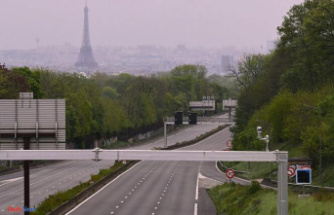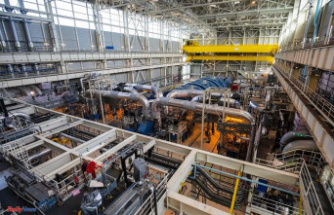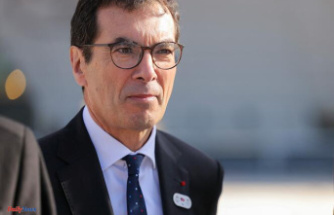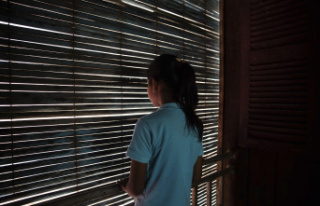The president of the Association of Manufacturers and Distributors (Aecoc), Ignacio González, receives EL MUNDO at the gates of the General Assembly that celebrates this Thursday the patronage of mass consumption. A key appointment to take the pulse of the sector at a time, he warns, "quite hectic",
It breaks the ice with a crystal clear clarification: "We are in an inflation of costs". And what have companies done about it? Three things, he indicates: reduce expenses, cut margins and transfer part of the costs to sales prices, "because the rise has been of such a caliber that it has not been possible to mitigate it with the first two measures." "We are not the culprits, but some more victims. You just have to see the results of the companies," she says.
Precisely, the Government has just announced the creation of an observatory of business margins that seeks to maintain effective competition in the markets for goods and services and an adequate distribution of income. An initiative that González views with suspicion from a sector in which free competition reigns and in a context of inflationary crisis that affects the entire food chain. "If you want to observe, what you are going to verify is this: that it is a competitive market and that nobody is getting rich," he says.
When are the prices going to drop? To the most direct question, the president of the mass consumption employers' association responds from the prudence of someone who has closely followed the vagaries of analyst forecasts in recent months. "Both the rises and falls of inflation in this sector are slow, but consistent," he explains. And he looks at Funcas projections to draw a food inflation of 9% at the end of the year.
"All this, as long as we don't have any geopolitical upsets and the climatic effects don't punish us," he warns, referring to certain product categories that will continue to rise as a result of the drought, such as oil, cereals or milk. Although he is confident that the elements that are helping to lower inflation, such as the lower price of some raw materials, the disappearance of tensions in the supply chain or the VAT reduction approved by the Government, will maintain this downward trend. .
However, González warns that a drop in inflation is not a drop in prices, but a lower rise, so he rules out that we will see the prices of before this crisis in supermarkets again. And he insists on asking the Government to extend the VAT reduction to meat and fish, which represent more than 30% of the CPI for food, because "their consumption is falling quite alarmingly." And this affects the less favored classes to a greater extent. In his opinion, the Executive has the capacity to carry out this expansion because "the great beneficiary of inflation is tax collection."
In this sense, Aecoc expects "some gesture" by the Government in the electoral campaign. "Even if it is with the excuse of the elections, if VAT is lowered, even if it is an electoral measure, it is welcome, because it will go in the direction of improving the disposable income of households," he affirms.
Meanwhile, families are adapting their budgets and employers are detecting important changes in consumption habits. Among other things, a strong impulse of the private label of the distributors and a trend towards what is called trading down, which is nothing more than giving up a product category to buy at more attractive prices. "This translates into a lower level of consumption. Spain is dropping in volume and that is a big problem," warns González.
And in this context, attracting customers and maintaining market share has become the main obsession of the distribution chains and the strategy necessarily involves intensifying the promotion policy. "Inflation has risen in a wave that has forced companies to consider how to regain competitiveness, attract the consumer and make the volume go up again" and when the prices of raw materials are still not clearly at the low, this is achieved based on promotions. "We do not live well with inflation, that is the reality. We make many attempts to lower it, promotion is one of them and we are going to see it a lot in the coming months," he says.
The leader of Aecoc charges against the tax on plastic, whose expected collection exceeds the VAT reduction by 100 million euros. In his opinion, tax increases have an impact on the competitiveness of the value chain and reduce the effectiveness of other measures that would imply lower inflation. He also criticizes the tax figure for his "collection zeal", the modus operandi of the Government, whom he accuses of being "more papist than the Pope" and of "wanting to be the first in the class" for having approved the tax before than any other country in the European Union.
On the accusations that businessmen in the sector have received from the Government, he reflects: "We have gone from heroes to villains and probably, we were not so heroes and now we are not so bad." He assures that they attend "astonished" and "astonished" at certain comments. "It's as if a company making money was a bad thing," he is surprised, to ensure that "if companies are profitable, they create longer-term employment, with better salaries, they invest and they will make the country grow and be more productive ".
He affirms that, in a market economy, this is the solution to get out of the crisis, and warns the Government that "demonizing is of little use" and distracts it from what should be its main action: in the face of "extraordinarily high", adopt measures to recover the disposable income of consumers, who are the ones who are suffering the most, especially the most vulnerable.
"We need a government that listens more. It is not about ideology, but about asking the sector to be less wrong. We are interested in the economic well-being of the country, we can disagree on how, but not on what," he concludes.
According to the criteria of The Trust Project












